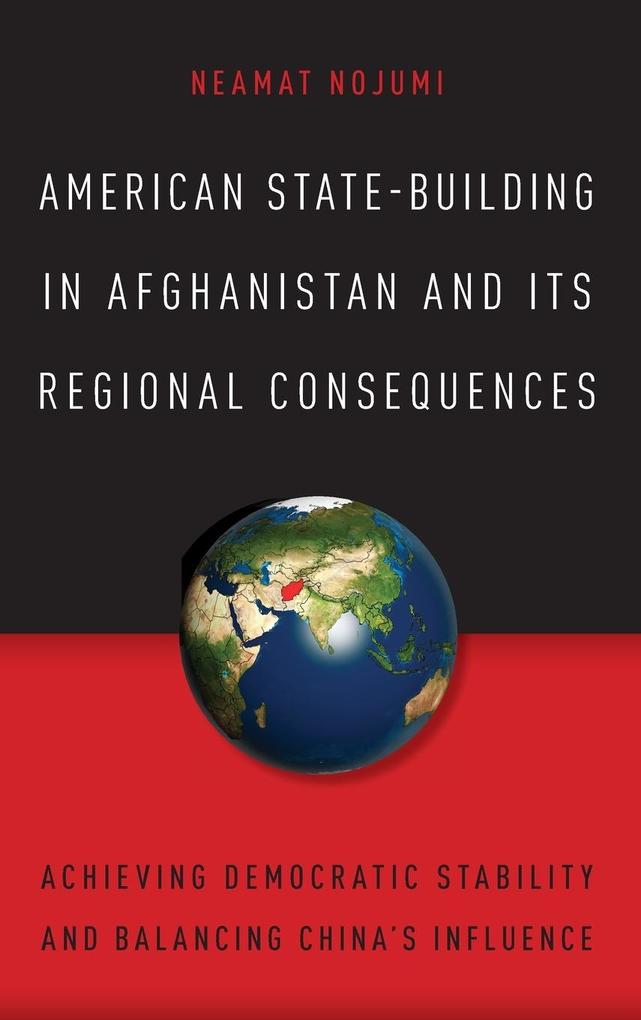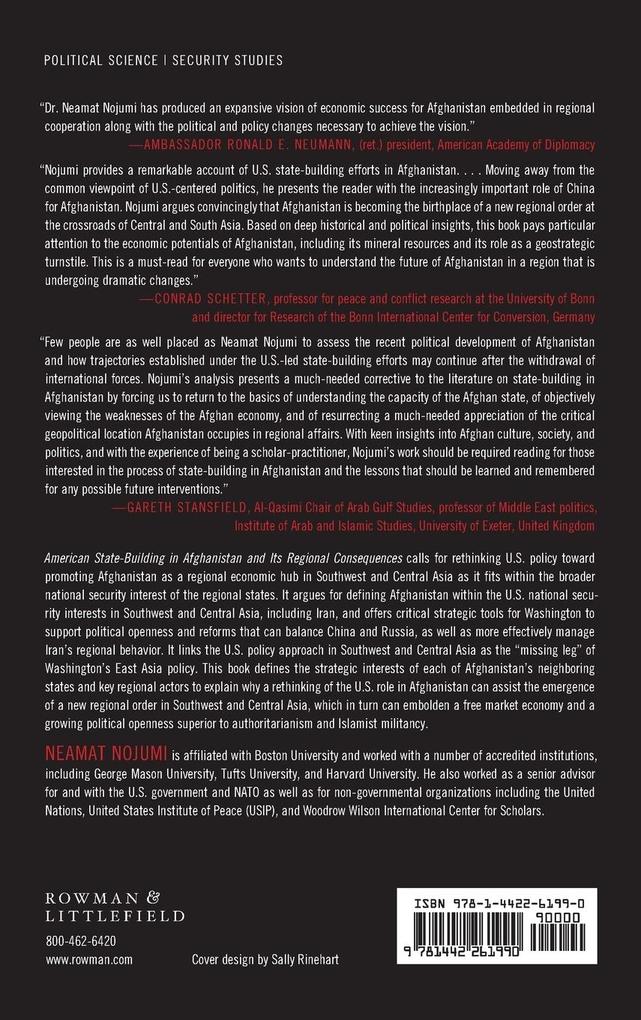
Zustellung: Mo, 23.06. - Do, 26.06.
Versand in 1-2 Wochen
VersandkostenfreiBestellen & in Filiale abholen:
This book explains why and how the U. S. and NATO military gains have not produced the expected political victory, and calls for rethinking U. S. policy toward promoting Afghanistan as a regional economic hub in Southwest and Central Asia as it fits within the broader national security interest of the regional states.
Inhaltsverzeichnis
Preface
Foreword by Professor Thomas Barfield
Introduction
Part One: The Ability of Afghanistan to Deliver Acceptable Governance to its People
Chapter One: The Role of the U. S. Military Intervention in the State-Building Process
Part Two: Overcoming Structural Shortfalls of State-Building
Chapter Two: The Assumptions of the Interventionists in State-Building
Chapter Three: Political Strategic Pitfalls and Opportunities in the Decade of Transition
Chapter Four: Achieving the "Soft Landing" into Transition - Immediate to Short-Term
Chapter Five: Achieving Economic Stability - Mid- to Long-Term
Part Three: Afghanistan's Changing Geopolitical Role in the Region
Chapter Six: The Reconfiguration of Afghanistan's Geo-Political Role
Chapter Seven: The Birthplace of a New Regional Order - Key Regional Economic Actors
Part Four: Key Steps toward Afghanistan's Future Stability
Chapter Eight: Overcoming Insurgency and Corruption - The Decade of Transformation
Foreword by Professor Thomas Barfield
Introduction
Part One: The Ability of Afghanistan to Deliver Acceptable Governance to its People
Chapter One: The Role of the U. S. Military Intervention in the State-Building Process
Part Two: Overcoming Structural Shortfalls of State-Building
Chapter Two: The Assumptions of the Interventionists in State-Building
Chapter Three: Political Strategic Pitfalls and Opportunities in the Decade of Transition
Chapter Four: Achieving the "Soft Landing" into Transition - Immediate to Short-Term
Chapter Five: Achieving Economic Stability - Mid- to Long-Term
Part Three: Afghanistan's Changing Geopolitical Role in the Region
Chapter Six: The Reconfiguration of Afghanistan's Geo-Political Role
Chapter Seven: The Birthplace of a New Regional Order - Key Regional Economic Actors
Part Four: Key Steps toward Afghanistan's Future Stability
Chapter Eight: Overcoming Insurgency and Corruption - The Decade of Transformation
Produktdetails
Erscheinungsdatum
17. März 2016
Sprache
englisch
Seitenanzahl
342
Autor/Autorin
Neamat Nojumi
Verlag/Hersteller
Produktart
gebunden
Gewicht
707 g
Größe (L/B/H)
235/157/25 mm
ISBN
9781442261990
Entdecken Sie mehr
Bewertungen
0 Bewertungen
Es wurden noch keine Bewertungen abgegeben. Schreiben Sie die erste Bewertung zu "American State-Building in Afghanistan and Its Regional Consequences" und helfen Sie damit anderen bei der Kaufentscheidung.










